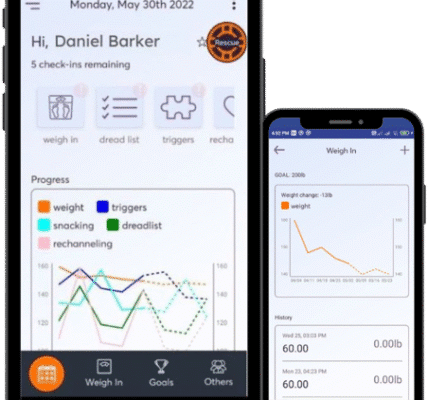Are GLP-1 Drugs Decimating the Market for Eating Disorder Clinics?

The growing use of GLP-1 drugs such as Ozempic and Wegovy for weight loss, combined with the improving quality of telehealth options, has resulted in a sharp reduction in the number of patients attending residential eating disorder clinics.
The decline has resulted in two major national providers — Odyssey Behavioral Health and Discovery Behavioral Health — scaling back or eliminating eating disorder clinics.
Nashville-based Odyssey is closing clinics in Long Beach, CA, and Laguna Hills, CA, according to industry watchdog, Behavioral Health Business. Meanwhile, California-based Discovery is closing its eating disorder clinics in Atlanta, GA, and Dunwoody, GA.
Both private equity firms have been growing their operations in addiction treatment and mental health services. These markets are not shrinking due to GLP-1 drugs, though there is hope the drugs will prove effective against substance use disorders and behavioral health disorders.
Odyssey, Discovery, and similar behavioral health providers with large national footprints are pioneering the integration of smartphone applications into the recovery process. The apps allow for potential passive monitoring of vital statistics and alerts as warranted. There is even a Narcan pill that stays in the body for a week and can be activated by signs of an overdose. Increasingly, apps can be used for real-time monitoring and timely interventions to help patients stay in recovery.
According to the Centers for Disease Control and Prevention (CDC), four in 10 American adults are obese, a number that has been steadily growing — along with waistlines — for decades. GLP-1 drugs are credited with the first (small) decline in obesity rates in over a decade. It’s possible that with GLP-1 drugs and better telehealth support, Americans will better manage eating addiction and other disorders.
The number of residential eating disorder clinics in the U.S. grew from just 22 in 2006 to 75 in 2014. A review of the outcomes of patients treated in residential eating disorder clinics found that as many as 30% of the patients remained ill 10-20 years following treatment, with nearly 50% being rehospitalized.
Researchers looked at a massive data trove collected from seven years of residential treatment for nearly 1,500 patients with eating disorders (979 adolescents and 442 adults). Some of the interesting results include:
- An improvement in average GAF scores from mid-30s (“major impairment”) to mid-40s (“serious symptoms”).
- Patients who needed weight restoration upon admission gained 2 lb/week, on average.
- 89% of people with a purging issue completely ceased purging during treatment.
A GAF score stands for the Global Assessment of Functioning. It’s used as a way to measure the severity of mental illnesses. The scale runs from zero to 100. The mid-30s indicates “major impairment in several areas, such as work or school, family relations, judgment, thinking or mood.” The mid-40s indicates “serious impairment in social, occupational, or school functioning.”
In some ways, we are comparing apples and oranges when comparing clinics treating anorexia nervosa and those treating eating addiction, but in many ways they have similar causes — stress — leading to different forms of displacement: compulsive eating, binge eating, and eating and purging.
It’s possible that GLP-1 drugs and better telehealth applications can lead to improved outcomes, regardless of the eating disorder, behavioral disorder, or substance use disorder being treated. We’ll keep an eye on these developments here at AddictionNews.
Written by Steve O’Keefe. First published September 22, 2025.
Sources:
“Closures Reveal Shakiness of the Traditional Eating Disorder Industry,” Behavioral Health Business, February 9, 2024.
“Odyssey, Discovery Behavioral Health Scale Back Eating Disorder Treatment Centers,” Behavioral Health Business, December 11, 2023.
“Demographics and Outcomes of Patients With Eating Disorders Treated in Residential Care,” Frontiers in Psychology, January 16, 2020.
“What Is the Global Assessment of Functioning (GAF) Scale?,” WebMD, January 16, 2025.
“US Obesity Rate Drops for the First Time in a Decade,” Physician’s Weekly, December 24, 2024.
Image Copyright: gheoronstan.




